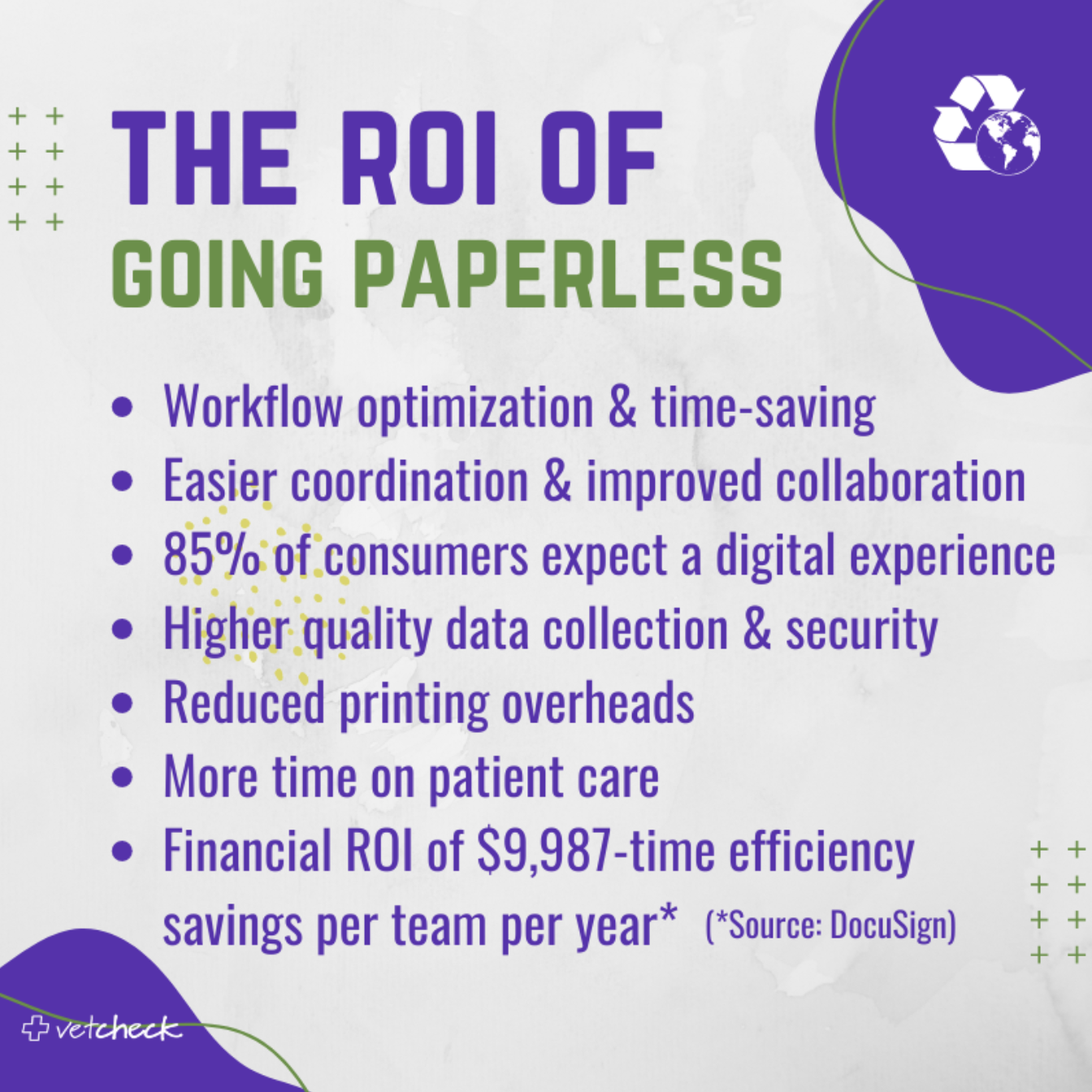The cost analysis of going paperless
From the point of onboarding a client, admitting a pet to the hospital through to discharge, veterinary clinics incur costs. These costs are often accepted as good record keeping is required to maintain customer data, compliance, storage, and destruction. It has been estimated that for each hospital admission, no less than 10 pages of paper can be generated. The costs associated with creating, storing, recalling, and managing these paper documents all add up. Reducing the associated costs across the clinic process is often overlooked as an efficiency opportunity.
Here are the costs of not going paperless
- Paper documents are at more risk of getting lost
- Filing paperwork requires bulky and complicated filing systems
- Manually entering paperwork takes more time
- Paperwork is not accessible for remote teams
- Paper-based workflows are less efficient
- Need for expensive storage space to store paperwork
- Paper-based offices are not eco-friendly, which is important for environmentally-minded customers
For every 4-drawer filing cabinet:
- It holds anywhere from 10-20K pieces of paper
- Contains $25,000 of paper costs
- Costs $2,000 per year to maintain or store
The ROI of going paperless
Veterinary practices that use VetCheck have proven that by streamlining processes and adding technology to eliminate paper from their workflow, can have a financial ROI of around $10,000 in time efficiency savings and printing overheads per vet per year. Team productivity increases anywhere from 30 to 50%.

Benefits of VetCheck as a paperless system
- Fully customizable forms
- The flexibility of a form builder
- Full integration with participating practice management systems
- QR code for ease of transition to alternate devices
- Auto-fill of client and patient details
- Real-time push back into patient history
- QR codes to all our forms for ease of transfer from one device to another
- Ease of use - VetCheck can be implemented with little to no training

Going paperless is environmentally friendly
Paperwork represents the largest waste product for 70% of businesses, with 50% of it ending up in the bin or shredded. Digital-based systems have proven to save over 635 billion kilograms of paper a year, helping to support the environment.
What to consider when doing your own cost analysis
- How long does it take your team to print, scan, rename, file, shred
- It has been estimated that 60% of an employee's time is devoted to paperwork
- Data entry from paper forms and deciphering handwriting is a lot more time consuming than transferring data from digital forms
- Server storage costs for scanned documents (average scanned document is 2MB per page)
- How much does it cost your practice for paper, printers, and ink
- The time it takes to manage paperwork - tracking documentation (physical forms are lost every 12 seconds), filing or shredding
- Time wasted at admission due to roadblocks for client form completion when VetCheck forms can be completed prior to admission
- Client convenience and improved customer experience
- Team convenience
- Environmental considerations